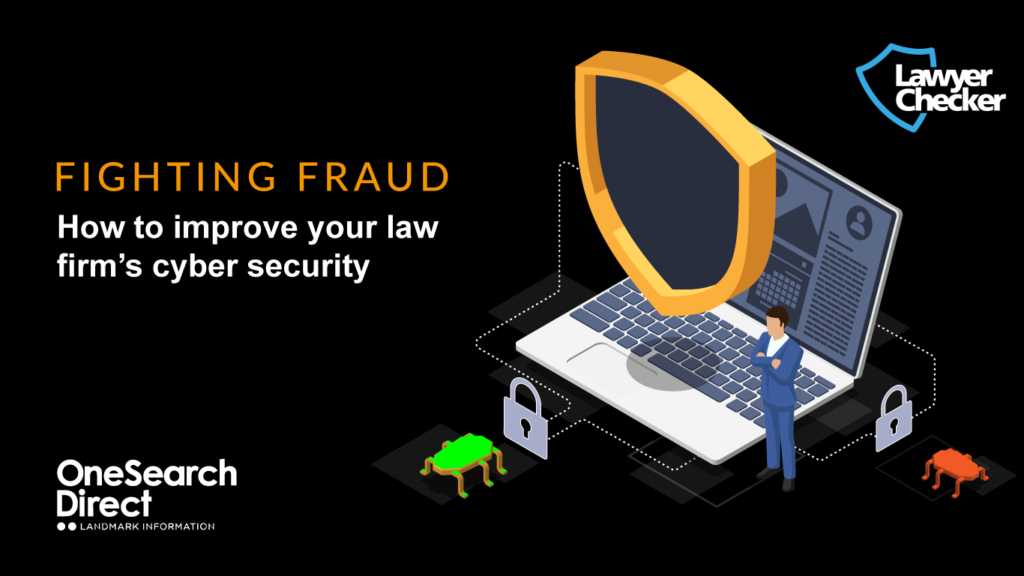
Ensuring your firm is cyber secure is an ongoing commitment
PriceWaterhouseCooper, among others, has recently highlighted the rise in cyber security incidents. They have given a number of reasons why this could be, including:
- Organised crime groups likely see this as an opportunity to target organisations in desperate situations
- Opportunistic reconnaissance identifying vulnerabilities, possibly related to rapidly stood up remote working practices
As law firms handle both large amounts of personal data and client monies, they are an attractive target for cyber criminals. There is evidence to suggest cyber-attacks against law firms are rising with 73 of UK top 100 targeted.
In fact, the WHO reports “a dramatic increase in the number of cyber-attacks directed at its staff, and email scams targeting the public at large.”
The top 5 questions to ask yourself about the dangers of cyber crime
With many staff still unable to come into the office, here are 5 questions to help you consider where your business is now in terms of ongoing cyber security:
- How up to date are your current cyber security policies?
- Do these policies take increased home working into account?
- Do you know if the home network of your employees is secure?
- Are there any new or emerging cyber threats to be aware of?
- Do you have the expertise in-house to deal with cyber security or do you need to outsource to experts?
Cyber crime exploits uncertainty and lack of knowledge
The best way to be prepared is to be aware of the risks and plan accordingly. For example, you could choose to put together a strategy based on the suggestions listed below:
- Plan as if you were going to be attacked. Cyber criminals are looking for easy or lucrative targets, regardless of size or turnover
- Look at your firm’s password creation policy. You’d be surprised how many people still use names of children and their date of birth as a password. Insist your passwords follow a particular structure, dictating length, use of capital letters, numbers and special characters
- Ensure you have a robust system in place that backs up your data frequently
- Back up your data in different locations, both on and offline, to make you less vulnerable to a ransomware attack
- Ensure the safety of personal information of staff and customers is protected
- Invest in staff training. Make staff aware of different types of cyber attacks, including phishing, and know the procedure to report a suspected attack
- Get expert advice. It’s worth outsourcing to experts if you don’t have your own cyber security staff
For more information, the National Cyber Security Centre have put together some resources to help companies protect themselves from cyber-crime. Click here to view.
How can we help?
OneSearch Direct can help prevent identity theft through our Lawyer Checker products. These reports provide peace of mind that you are sending client monies to the intended parties. All searches are conducted in real time and offer an enhancement to your due diligence and cyber risk management.
Lawyer Checker Account Entity Screen
Lawyer Checker is a simple but effective online service that allows you to check the vendor conveyancer that you are sending money to. When account and firm details are submitted, Lawyer Checker will identify if there is a track record of previous use associated with that account.
Lawyer Checker Consumer Bank Account Checker
When you send or receive client funds, can you be sure you know whose account it is? Whether sending or receiving client monies, Consumer Bank Account Checker validates the source or destination of funds.
It’s almost impossible to assess the damage a cyber attack could do to your firm, so being pro-active is vital.
Is cyber crime getting worse? Read our Industry Interview with Tom Lyes from Lawyer Checker here.
Related Articles

Laughs, loyalty and lifelong learning: An interview with OneSearch’s Liz Jarvis

Covering your clients’ search costs with OneSearch Pledge

Streamline your ordering: new how-to videos are here!

The AML golden triangle: aligning tech, people, & process in property transactions

7 reasons conveyancers choose OneSearch Prime for Local Searches

The Landmark Q1 2025 Residential Property Trends Report is now available

Landmark’s new commercial product portfolio has arrived

What is the true cost of AML for conveyancers?

What specific areas of conveyancing would most benefit from AI?

